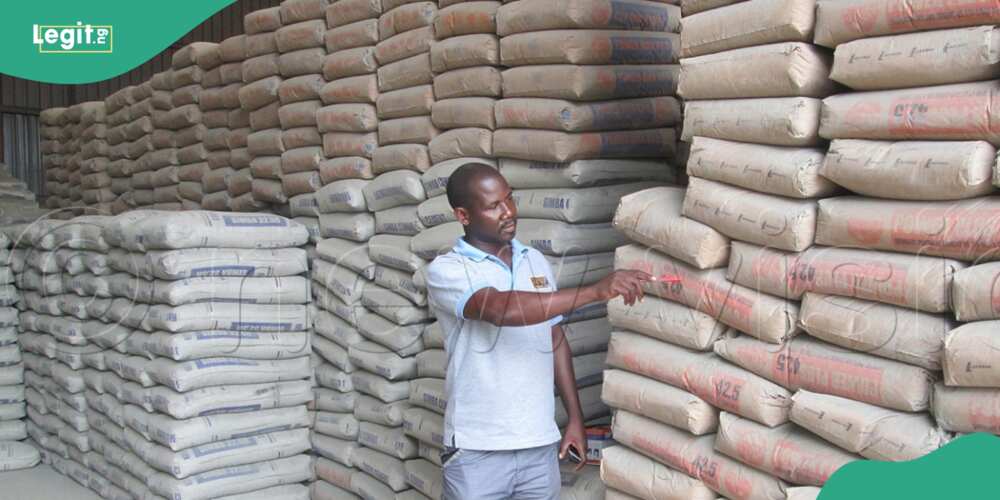"Insufficient Forex": Manufacturers Say Cement Sales Reduced by 30% Over Naira Redesign
- Nigerian Manufacturers revealed cement sales declined due to currency crises earlier in the year
- According to a report by the association, the action almost sent a lot of manufacturers out of business
- They added that this led to a decline in their working capital
The Manufacturers Association of Nigeria (MAN) has revealed cement sales decreased by 30% at the height of the currency crisis earlier this year.
The group also claimed that a 20% decrease in consumer goods sales occurred during this time due to a lack of access to cash.

Source: UGC
Naira policy triggers increase in cement price
MAN stated the devastation caused by the naira redesign policy on the manufacturing sector in "Special Focus", a research on its Manufacturing CEOs Confidence Index.
PAY ATTENTION: Follow us on Instagram - get the most important news directly in your favourite app!
The report said the Central Bank of Nigeria (CBN) does not need to hasten the country's shift to a cashless economy or engage in overly aggressive policymaking due to the progress recorded.
The research also claimed the protracted crisis nearly brought manufacturing enterprises to their knees by causing sales of consumer products and cement to decline by 20% and 30% respectively.
MAN noted that the crisis had a detrimental effect on the manufacturers by directly reducing their working capital and putting a stop to their regular business operations.
The lack of naira, the study added, also hurt manufacturing companies' ability to attract customers, leading to an increase in their stock levels, particularly for retail goods.
It further claimed the economic crisis had negative effects on the logistics cost chain and the industrial value chain by placing the mostly cash-based distributive commerce sector at tremendous danger.
The report read partly:
“The substantial reduction in money velocity left opportunity for speculation and ignited the creation of a naira black market that compounded the woes of manufacturers already plagued by insufficient forex.
“The naira scarcity clearly wiped out numerous small and medium manufacturing businesses whose transactions were cash-based, especially those within the agro-allied industries who regularly deal with local farmers in remote towns where no formal banking is in sight.
More unfortunately, the exorbitant POS charges on such cash constrained the operations of resilient manufacturing SMEs and worsened their cost of doing business.
As the December deadline given by the supreme court approaches, there are concerns on the new note circulation. Expert who spoke with legit.ng noted that if the CBN commits to the deadline, they will make it work.
Uju Ogbunka, the President of the Bank Customers Association of Nigeria while addressing concerns about the circulation of the new note said,
"When you look at the time frame between now and December, we still have some scope to operate with. Maybe they (CBN) don’t want to do it in piece, they just want to print as much as possible before bringing them out so they can have enough to roll out as long as they have enough resources."
Dangote Cement Plc earlier clarified that its cement pricing aligns with -- or even falls below -- the prevailing prices along the West African coastline.
The company's reaction came amid claims that it sells cement at a higher price in Nigeria compared to other West African countries.
Dangote, BUA Cement Spend N205 Billion Powering Generators in First 6 Months of 2023
In an earlier report by Legit.ng, Dangote Cement and BUA Cement said they spent about N204.925 billion powering their generators for operations during the half year ended June 30, 2023.
The spending represents an 18% increase from N173.537 billion recorded during the same period in 2022.
The amount also represents 41.15% of the total cost of sales for the firms amounting to N498.031 trillion recorded during the review period.
Source: Legit.ng




